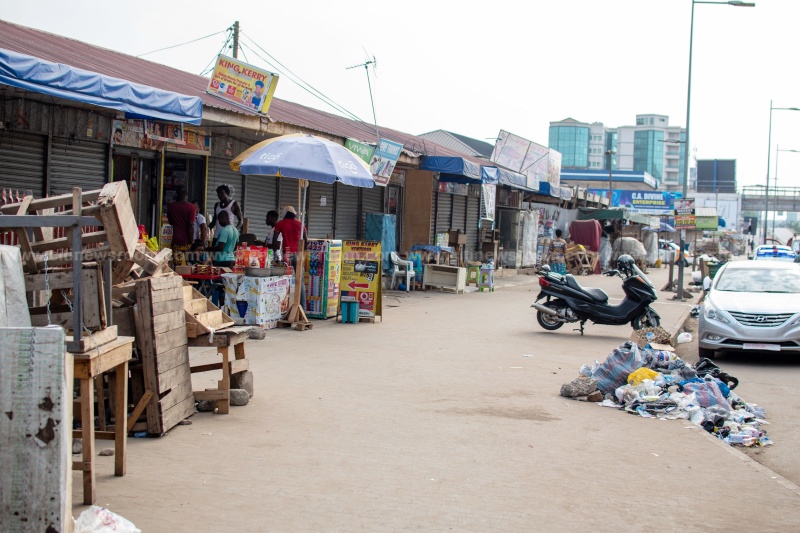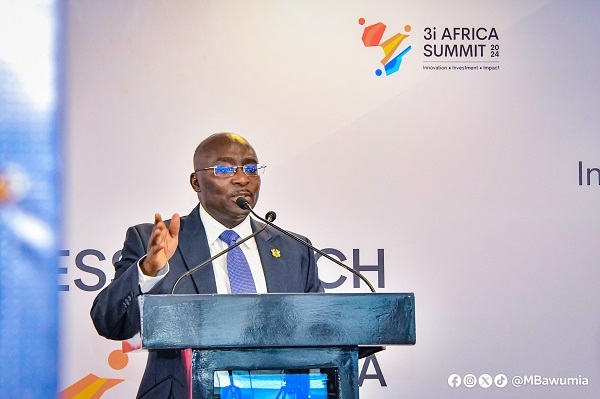
Jeffrey Owuraku Sarpong writes: COVID-19: How jobs and businesses in Ghana could be affected

When the news of the novel COVID-19 came out of China, we all hoped that like the Ebola outbreak, it would not get to Ghana.
There were prayer meetings held for this purpose. Unfortunately, the virus is here, and we have to find ways to deal with it.
The President of the Republic, Nana Akufo-Addo shared a 5-point objective of his plan for fighting the outbreak.
“Limit and stop the importation of the virus; contain its spread; provide adequate care for the sick; limit the impact of the virus on social and economic life; and inspire the expansion of our domestic capability and deepen our self-reliance,” he said in his Friday night address to the nation.
Measures government has put in place so far are primarily aimed at dealing with the spread of the virus which in essence is to protect life. Though, a few lines have been devoted to the economy and businesses, the thrust of the objectives is clear; protect life!
This is the logical thing to do as human resource is actually the most important asset of organizations. Human lives must first be secured. And the President captured this in what appears to be his defining philosophy in these times, and may soon become an important quote, “we know what to do to bring back our economy back to life. What we do not know how to do is to bring people back to life.”
One thing we have not really looked at since everyone is first concerned with keeping safe and healthy, is the impact on businesses and how to help them deal with it. This is despite some assurances that a stimulus package of a sort will be prepared to cushion businesses.
Speaking about stimulus packages, this appears to be the language of many governments across the globe. The US has a 2 trillion-dollar package for its businesses. India has put together a 22-billion-dollar package for assisting its businesses. 10 billion Canadian dollars (about 7billion dollars) has been set-aside by the Justin Trudeau administration in Canada for the same purpose.
In Ghana, the Minister for Finance has been directed “to prepare, for approval by Parliament, a Coronavirus Alleviation Programme to address the disruption in economic activities, the hardship of our people, and to rescue and revitalize our industries. He will, then, immediately make available a minimum of one billion cedis (GH¢1 billion) to households and businesses, particularly small and medium scale enterprises,” the President assured.
Central banks including Ghana’s have also begun implementing measures that will ease the pressure on loan defaulters and businesses, by lowering rates.
“Extension of the tax filing date from April to June; a two percent (2%) reduction of interest rates by banks, effective 1st April, 2020; the granting by the banks of a six (6) month moratorium of principal repayments to entities in the airline and hospitality industries, i.e. hotels, restaurants, car rentals, food vendors, taxis, and uber operators. All other sector credit exposures will be reviewed on a case by case basis.”
All these measures are being put in place to mitigate the effect of the pandemic on businesses and the economy.
But no matter how you look at it, jobs will suffer a hit!
The COVID-19 outbreak and the subsequent partial lockdown mean that employees are at home or may not all be present at a time, as they used to do. With the directive, employers at even essential service points will have to find ways to make sure their workers either work from home, or run in shifts, just so they do not congregate – observing social distancing. Such a change for workers who may be used to always being in the office space will mean that they will have to take time to adapt.
Many others are working from home and still reporting remotely to their superiors.
Along with this human resource issue comes the logistics. What tools will these workers use to get their responsibilities done at home? They may have to start using remote access tools, which they may not be very familiar with.
Even if they have the tools, one problem that derails the attempts to work from home is the erratic power supply. The supply of electricity is not as consistent as we would want it to be. If the employee does not have a laptop computer that has enough battery capacity to last the period that is needed to get work done, productivity will be ground to a halt.
Then, we have one of the biggest issues that urban Ghanaians face – internet connectivity.
According to speedtest.net, the United Arab Emirates has the fastest average mobile internet speed at 87.01 megabytes per second. Ghana’s average mobile internet speed, according to the website, is 21.55 megabytes per second. Allconnect.com recommends an average internet speed of 40 megabytes per second for working from home.
This is almost double the average internet speed in Ghana, meaning that if I want an optimum ‘work-from-home’ experience, I would not enjoy it because I would be slowed down. The experience is worsened when the workers need access to specific network accounts that can only be accessed on specific IPs.
Without any remote access software connected to such a network, employees will either be left stranded at home, or will have to risk getting to their place of work to get work done.

Though Greater Accra and Ashanti regions are on a partial lockdown, the rest of the fourteen regions of the country are open for business though doing so bearing in mind the protocols provided.
If employers want their workers in the office always but want to reduce the risk of their contact with the public, they will have to arrange transportation for them. This will mean more bus trips for these employees, resulting in a rise in fuel consumption, which will then mean more money spent.
When the workers get to the office, how do they stay safe? Clean, running water and soap must be provided, hand sanitisers must be available. Remember that this is a time that vendors have exorbitantly increased the prices of hand sanitisers and alcohol rub.
The recommendation is to wash hands under running water for at least 20 seconds. This could be problematic in an environment where you cannot be promised to have running water at any time.
This means people must find ways to get their water positioned such that they can get it flowing without touching containers that will put them at risk, or will have to depend on their colleagues to fetch the water and pour on their hands.
One way to meet this spending issue halfway and mitigate its impact is if the revenue stream is good and consistent. However, with the issues that come with COVID-19, many businesses cannot get access to the raw materials and sometimes, the partnerships that they need to produce.
In such a case, the business has to either shut down, or look for alternatives to the raw materials and that would mean a higher cost incurred. One of Apple’s manufacturing partners, Foxconn has been deeply affected by the coronavirus and has yet to recover.
Apple’s projections of $63 billion to $67 billion for the first quarter of 2020 cannot be reached. The company sold 61% less devices in China in February 2020, as compared to what it did in the same market in 2019. In Ghana, the only products seeing a boom seem to be face masks and hand sanitizers.
As all this is going on, it is important for companies to restrict human access to their premises. However, the decision as to who to allow and who to deny is a big one that will take a lot of thinking. In media houses and banks, where there are lots of people coming in and going out, there must be a decision made as to which employees should be allowed to be on the premises and which ones be made to stay at home. Right now, with 152 cases in just 18 days with 5 deaths and 2 recoveries, it is no wonder that government and health authorities are racking up measures to keep us all safe.
However, should we get to the point where there is the risk of increase in community spread, there must be the decision made to hand-held thermal scanners that will be used to make sure that people who have a high temperature are not allowed on the premises. If the spread should get worse, then companies will have to start making the decision on whether or not the employees who are infected should be paid.
The companies that give sick leave to their employees and still put them on salary would already have that covered. The ones that do not have that yet, or may not give such employees who may be out for extended time any salary, may have to reconsider the policy. These decisions must be clear and must be communicated to the staff as early as possible.
In times like this, there will be a lot of fake news all over the place. It is important that companies do their best to get the right information to their employees. Employers must decide on the companies’ policies on getting the information to the employees. Should it be via the company’s WhatsApp page or will a special portal be set up to get workers informed?

Granted that all this is done, these are times for advertisers to make tough decisions. The first quarter is usually the slow period when companies are deciding which platforms to advertise with. Quarter two is usually the time when the advertising really kicks off for companies. This is the time when media companies will start to really know how much revenue they make. Unfortunately, this has been hit by the coronavirus disease.
Many advertisers have suspended their ads, with the hopes of resuming when the virus gets under some control. If the pandemic goes on for an extended time, it means many companies that depend on advertising revenue will be forced to close down, because of a lack of revenue for operations.
Concerts, conferences and all other events have been cancelled. Schools have been closed, religious gatherings have been cancelled, even funerals, which Ghanaians seem to love so much, have been cancelled.
The silver lining, however, is the huge potential the crisis provides for the pharmaceutical industry. This is the time for this industry to step up and fill the gap that exists in terms of production of some essentials such as hand sanitizers and other medical consumables that will be needed to support the management of the plague in Ghana and even in our neighbouring countries. The example from the shortage of hand sanitizers and how the local industry rose to the task should be the defining moment for the Ghanaian ingenuity and entrepreneurial spirit. Government must encourage the spirit by working to inhibit the importation of hand sanitizers after the pandemic. At least, we should be encouraged to be self-sufficient in hand sanitizer production for local consumption!
There is no aspect of our lives that hasn’t been touched by COVID-19, but businesses will generally bleed a lot in the time that it takes to get it under control. Employers have a lot of difficult decisions to make, and it is possible that many people may be laid off to try and balance the books.
The hope is that our government will be proactive in thinking up measures to protect not just the people, but businesses too.
—-
The writer, Jeffery Owuraku Sarpong, works with Citi FM, Citi TV and citinewsroom.com
Source: citifmonline.com






